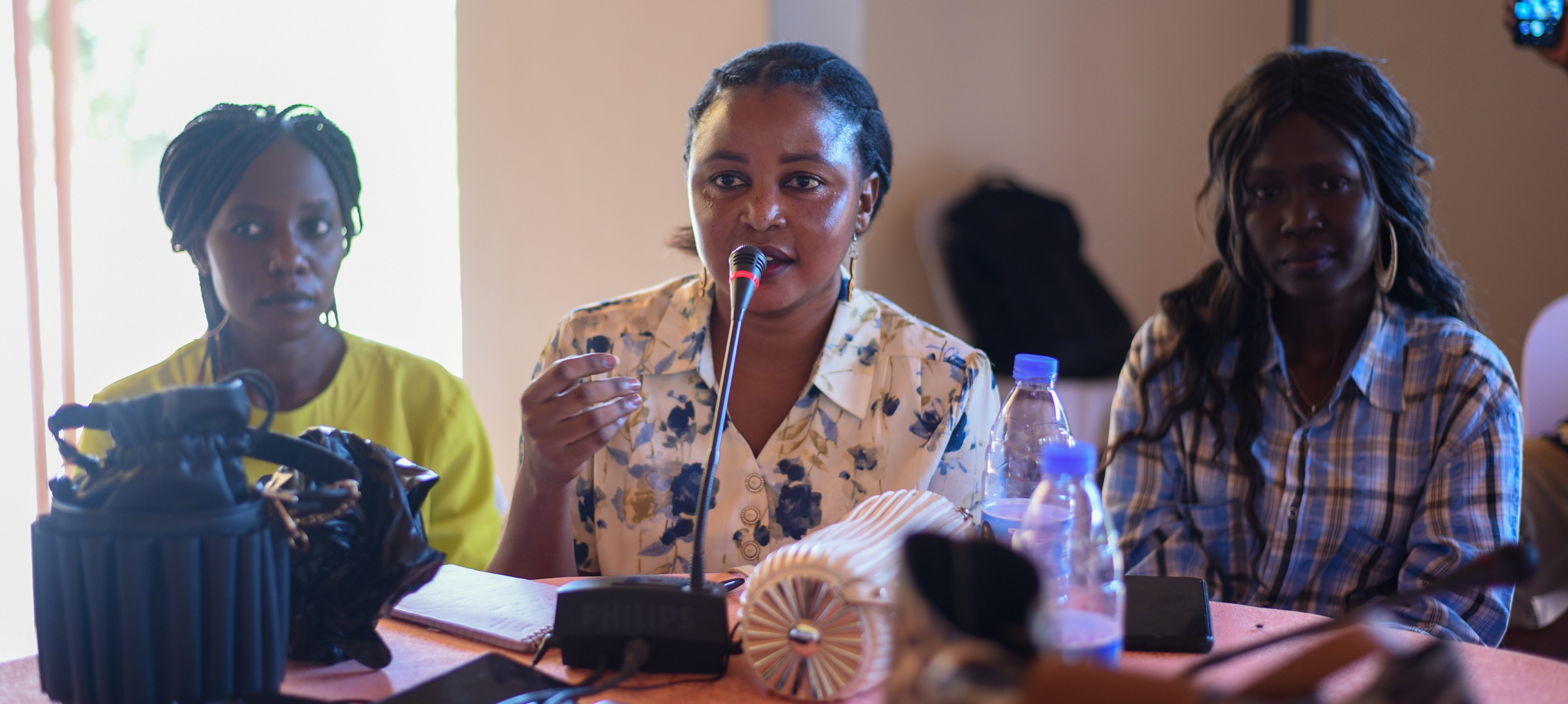A Demonstration of Political Will: Our Thoughts on the African Union’s Commitment to a 30 % Gender Quota for Women’s Participation
The African Union’s new policy framework to support women’s participation on the continent is a promising step in the right direction. This blog reflects on the importance of the policy framework and what it takes to secure implementation.
Inclusive Peace has recently supported our partners at the African Union’s Women, Peace, and Security Reference Group with inputs for the new policy framework promoting the WPS agenda on the continent.
A prominent feature of the framework is a commitment to a minimum of 30 % gender quota for women’s participation in all conflict prevention and management missions, peace processes, and election observation missions led by the AU.
In this blog, our Peace Process Support Advisor Dr Ayak Chol Deng Alak reflects on the importance of the policy framework and what’s next for implementation.
Why is this an important resolution?
This is a demonstration of political will. This gender affirmative action quota, a minimum of 30% of women representation across all institutions, has been passed in Namibia at the African Union Peace and Security Council. This means that the highest level of government representatives, prime ministers, and the heads of the African Union mechanisms were present. The commitments in the policy framework show the highest form of political will at the continental level. By proxy, national governments will adopt and include the policy framework in their national policies.
The policy framework does not just speak on the affirmative action quota, it also highlights all the necessary instruments, processes, and procedures that need to be adopted to see this implementation come to fruition.
Sometimes, these resolutions are made without the political will to implement them. Implementation comes on a different level. Implementation means having the capacity, the expertise, and setting aside the necessary instruments for implementation. It also means reserving funding and advocating for this new policy. It is also important to note that this offers an important “hook” for civil society to push further for more inclusive processes, leverage this new policy standard, and seek to put it into practice.
What risks do you see that could hamper implementation?
The main risk is that the policy framework is simply not implemented at the national or country level. Second, there is always the funding question and how gender-related issues, articles, and concerns are always given the bare minimum funding.
Third, is it a risk that policymakers focus exclusively on the inclusion aspect of 30% without considering all the other institutions and mechanisms that need to be put in place. Inclusion is not just to comply with the gender quotas, meaningful inclusion also entails the mechanisms and modalities that ensure complementarity and effective and efficient capitalization on the quota systems. How are women involved in decision-making within a process? What does their engagement in implementation look like? How can a more inclusive process, also lead to more inclusive outcomes in terms of inclusive structural change? These are the kinds of questions which need to be explored further.
And then lastly, some countries have higher quotas of up to 35 or 40 % of representation of women in government institutions and other policy-making institutions. The fear then becomes that it might push back or reduce the participation of women because if the African Union says 30%, why should a country aspire for 35% of representation? There is a discussion currently underway on how to guard against backtracking on the gains made in other contexts with higher quota systems for women’s participation.

What are the main strategies to mitigate these risks?
The fact that this is a high-level resolution is one of them. Secondly, it is advocacy. Advocacy for capacitation, and advocacy for funding to ensure that all these mechanisms are in place. Because funding is the highest form of demonstrated political will.

